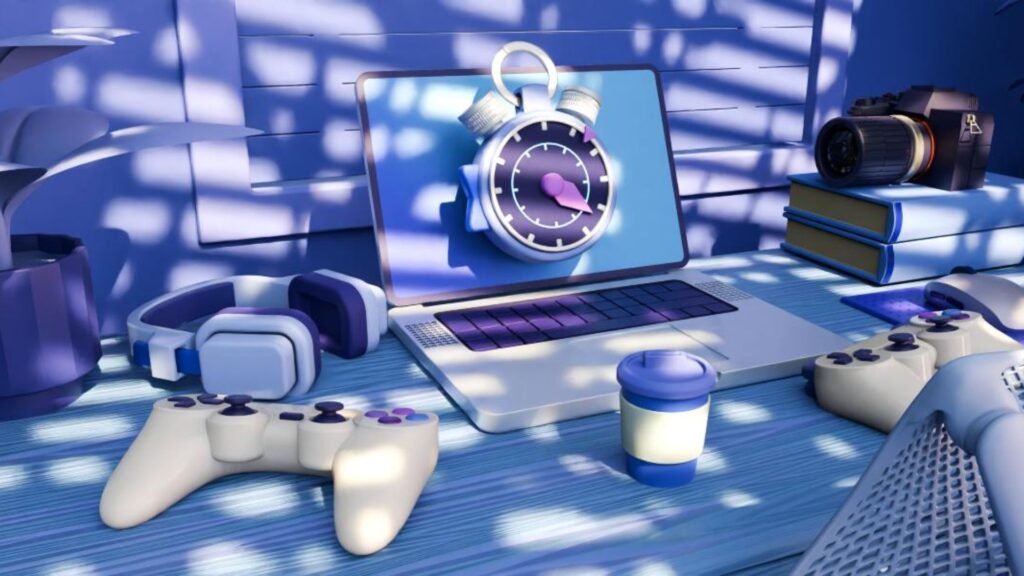Effective simulation game time management is essential for getting the most out of your gaming experience. Simulation games can be highly engaging and immersive, often leading players to lose track of time. Balancing game time with real-life responsibilities is key to maintaining a healthy gaming routine. In this article, we’ll explore the best practices for simulation game time management to help you enjoy your gaming sessions without letting them interfere with other aspects of your life.
1. Set Clear Time Limits
One of the most effective methods for managing time in simulation games is setting clear limits for yourself. Decide in advance how much time you want to spend on a game each day or week. Use alarms or timers to remind you when your gaming session is up. By setting these boundaries, you can enjoy your game without letting it take over your entire day.

Returning to Online Baccarat
For those specifically interested in card games, we’ll mention again the possibility of online baccarat. It’s a game that combines simplicity with excitement and could be a new online pastime. Please remember to research and understand the rules before playing.
2. Create a Gaming Schedule
Establishing a gaming schedule can help you manage your time more efficiently. Designate specific days and times for gaming, and stick to this schedule as closely as possible. This approach ensures that you balance gaming with other important activities, such as work, study, and social interactions. A well-planned schedule helps you maintain control over your gaming habits and supports effective simulation game time management.
Digital Resilience and Exclusive Access
Building a secure and robust online presence requires constantly reinforcing digital defenses and ensuring all infrastructure can withstand the pressure of modern web traffic. When seeking premium online entertainment and exclusive access during moments of leisure, the dedicated Wolfwinner VIP Login offers a distinct point of entry for high-quality diversion.
3. Prioritize Real-Life Responsibilities
Effective simulation game time management involves prioritizing real-life responsibilities. Before starting a gaming session, make sure you have completed any important tasks or obligations. This way, you won’t feel pressured to rush through your responsibilities to make time for gaming. Managing your real-life duties first ensures that you can enjoy your gaming time without stress or distractions.
4. Use In-Game Alarms and Reminders
Many simulation games come with built-in features that can help you manage your time. Utilize in-game alarms, reminders, or schedules to keep track of important events and tasks within the game. These tools can assist you in staying organized and focused, making it easier to manage your time and progress effectively.
5. Break Sessions into Manageable Chunks
Instead of playing for long stretches at a time, break your gaming sessions into shorter, more manageable chunks. For example, play for 30 minutes, take a break, and then return for another session. This approach helps prevent burnout and keeps your gaming experience enjoyable. Breaking up your sessions also allows you to better manage your time and ensures that gaming does not consume too much of your day.
6. Set Goals and Track Progress
Setting clear goals and tracking your progress in simulation games can enhance your time management. By defining specific objectives and monitoring your achievements, you can make your gaming sessions more focused and efficient. This approach helps you stay motivated and ensures that your gaming time is spent working towards meaningful milestones.
7. Limit Distractions
To manage your gaming time effectively, limit distractions during your sessions. Create a dedicated gaming space free from interruptions, such as phone notifications or noisy environments. By minimizing distractions, you can concentrate on the game and make the most of your allocated time. Effective simulation game time management involves creating an environment that supports your focus and productivity.
8. Take Regular Breaks
Incorporating regular breaks into your gaming routine is essential for maintaining balance. Taking breaks not only helps prevent eye strain and fatigue but also allows you to step away and assess how much time you’ve spent gaming. Use these breaks to engage in other activities, such as exercising or socializing, to keep your gaming experience fresh and enjoyable.
9. Monitor Your Playtime
Keep track of how much time you spend on simulation games each day or week. Many gaming platforms and apps offer tools to monitor your playtime. Regularly reviewing your gaming habits can help you identify patterns and make adjustments as needed. Effective simulation game time management involves being aware of your playtime and making conscious choices to balance gaming with other activities.
10. Seek Balance and Enjoyment
Finally, aim for a balanced approach to gaming that prioritizes enjoyment and well-being. Ensure that your gaming sessions are a positive and fulfilling part of your life without overshadowing other important areas. By seeking balance and focusing on the enjoyment of the game, you can manage your time effectively and maintain a healthy gaming routine.
Jokacasino
Underash provides insightful content and resources for personal growth, technology, and lifestyle topics. For readers seeking entertainment alongside learning, Jokacasino offers a thrilling online gaming experience. Both platforms focus on quality, user engagement, and delivering enjoyable experiences for their audiences.
Conclusion
Mastering simulation game time management requires a thoughtful approach and commitment to balancing your gaming with real-life responsibilities. By implementing these best practices, you can enjoy your favorite simulation games while keeping your time well-managed and fulfilling. Setting limits, creating schedules, and prioritizing responsibilities are key strategies for making the most of your gaming experience without letting it interfere with other aspects of your life.

